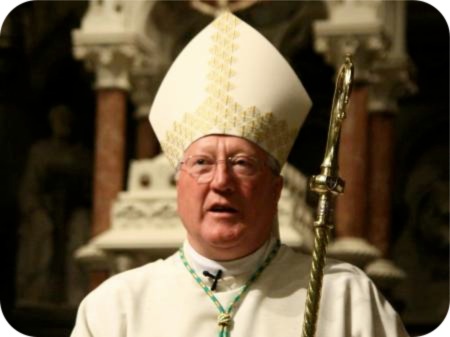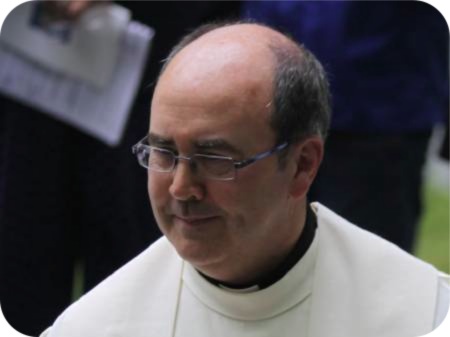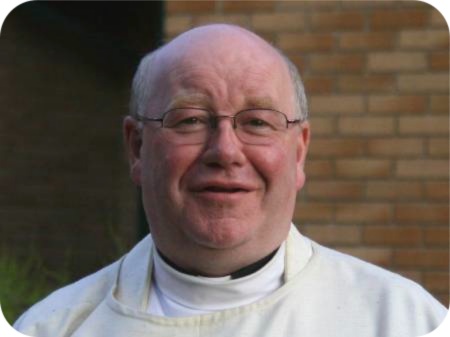After months of reflection, consultation and careful planning, Bishop Terry is proposing to re-organise the diocese. This is not change for the sake of change – the Bishop concluded that the present structures need renewing, to better serve the people, the parishes, the organisations and above all the mission of the diocese. These changes present us with a fresh opportunity to meet the challenges that face our Church.

What will be changing?
Our diocese is large and varied, stretching from Middlesbrough to Hull, and includes industrial cities, coastal holiday resorts and rural parishes. At present, it is divided into three areas called Vicariates, and these Vicariates have been subdivided into as many as 12 deaneries. Whereas this current structuring evolved over time to meet specific needs, it now needs changing to give us a greater sense of unity throughout the diocese, and at the same time making it easier to administer it effectively. We can spend less time on bureaucracy, and more on being what we are meant to be: a Catholic community, worshipping God, spreading the Gospel, and serving the wider community.
The new structures will be simpler and more streamlined. In place of the 3 vicariates and 12 deaneries of the past, there will be 4 local areas (deaneries). Your parish will be in one of these deaneries – North, Central, South or Coast. 4 priests will act as deans of the new areas (rather than the 12 deans and 3 Episcopal Vicars we have had up till now).
Vicariates and Episcopal Vicars
At present, many of the responsibilities of the diocese are organised centrally (support for Schools, Adult Formation, Liturgy etc). Reorganisation at this level will make the structures more streamlined and more responsive to the 4 areas. Rather than have 3 Episcopal Vicars representing the Bishop in designated regions of the diocese, which is the case at present, each new Episcopal Vicar (4 in total) will take responsibility for a key area of diocesan life: Evangelisation, Spirituality and Worship, Clergy, and Christian Discipleship.
Fr John Lumley will be Episcopal Vicar for Evangelisation. This vicariate will include responsibility for Schools and Colleges, Adult Formation, the Youth Service, School Chaplaincy, and other evangelising initiatives.

Fr Gerard Robinson will be Episcopal Vicar for Spirituality and Worship. This vicariate will include responsibility for Liturgy, Music, Art and Architecture, Historic Churches, and Spiritual Formation.
Fr David Grant will be Episcopal Vicar for Clergy. This vicariate will include responsibility for Ongoing Formation of Priests, Welfare of Sick and Retired Priests, Vocations Promotion, the Permanent Diaconate and Care of Religious.

Fr John Loughlin will be Episcopal Vicar for Christian Discipleship. This vicariate will include responsibility for diverse aspects of the Christian life, including Marriage and Family Life, Chaplaincy to ports, hospitals etc, Social Concerns, Justice and Peace, Life Issues, Ecumenism and Interreligious Dialogue.
More details about the deaneries and vicariates will be published in the autumn.
Bishop’s Council
Mgr Gerard Dasey, the current Vicar General, will continue in his role as the Bishop’s principal supporter. Every diocese has a Bishop’s Council to support and advise the Bishop in his leadership of the diocese. Our Bishop’s Council will be made up of the Vicar General and the four new Episcopal Vicars. These will be joined from time to time at the Bishop’s invitation by the Judicial Vicar (Canon Alan Sheridan), the Moderator of the Curia (Fr Derek Turnham), and the Financial Administrator of the Diocese (Dr Jim Whiston). More details about the Bishop’s Council – and the other groups the Bishop consults with as part of his leadership – will be given in the autumn.
The Curial Office
The Curial Office is where most of the administrative work of the diocese is done. Bishop Terry has appointed Fr Derek Turnham as the Moderator of the Curia, a return to the role he performed for Bishop John. This role will be adapted and modified to reflect the new way the diocese is being organised.
Looking Forward
This is a brief overview of the proposed changes to the structuring of the diocese, which will be put in place in the autumn. Bishop Terry is also keen to provide new ways of engaging with the views and experience of the people and organisations of the diocese; one way will be by promoting Parish Pastoral Councils in each parish. The Bishop would also like to establish a diocesan Council of the Laity, in much the same way as there is already a Council of Priests. The re-organisation is substantial, but is being undertaken carefully, and with as little disruption to the ongoing work of the diocese.
Undergoing Change
The Venerable John Henry Newman, soon to be Beatified by Pope Benedict XVl in Birmingham, reflected on how change is necessary in the life of the Church. Whilst the Church exists to witness to eternal and unchanging truths, to do so in a constantly changing world, it must be prepared to adapt. He wrote, ‘To live is to change, to be perfect is to have changed often‘. Whilst our re-organisations might not make us perfect, they should help us one further step on the way.
